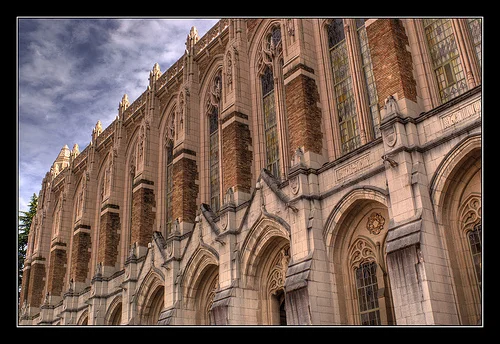DHSI UVic
Thanks to the Simpson Center for the Humanities at the University of Washington, I was able to attend this year's Digital Humanities Summer Institute, hosted by the University of Victoria in B.C., just up the proverbial street from Seattle. While I learned a lot (and was bewildered often), perhaps the most helpful aspect of the DHSI was incidental to it.
